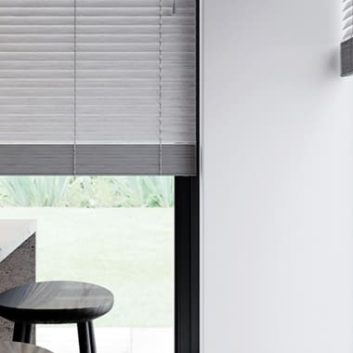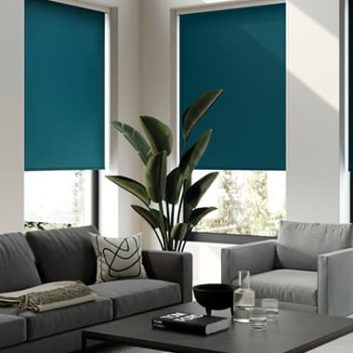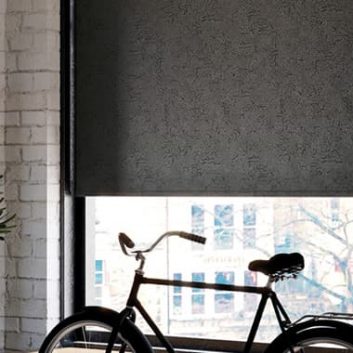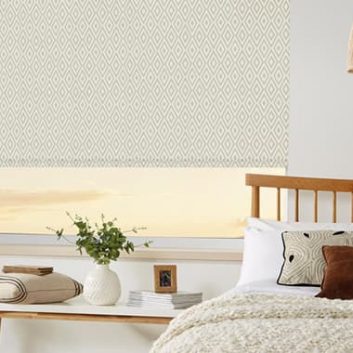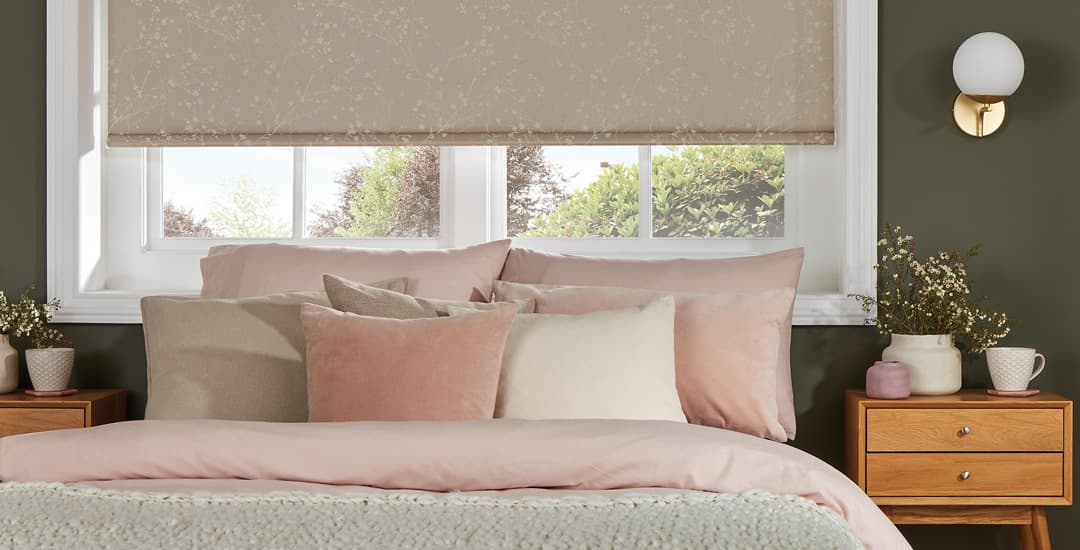
As you might imagine, we sell more blackout blinds for bedrooms than we do for any other room of the home, although I feel duty-bound to point out that blackout blinds also have various other applications as well as for use while sleeping.
But do you need blackout blinds in bedrooms, and are there any downsides to choosing them? First up, if you’re not hugely light sensitive then dimout blinds (this is the term we use to refer to all non-blackout blinds) of varying degrees of thickness and opacity might be perfectly fine, or even a better choice for you.
Some people actually find that having no idea of what sort of time it is when they wake up because a blackout blind keeps the room dark can be disorienting, and may make them grumpy and out of sorts when they do wake up; there is certainly no one size fits all answer.
This blog post will cover whether blackout blinds are necessary and/or advantageous both in general and in certain scenarios, to help you to make the best choice for yourself.
Do you need blackout blinds in bedrooms?
If your bedroom isn’t affected by an abundance of artificial light from outside and you don’t find that the morning sun wakes you up (or if it does, this is exactly how you like it) then you probably don’t need blackout blinds.
If, on the flipside, you find that the rising sun (particularly in summer) wakes you up before you need or want to be woken up, or that light from outside disturbs your sleep during the night, then maybe you do. You need blackout blinds in bedrooms if they will enhance your sleep; but not if you find that total darkness pervading at getting up time messes with your circadian rhythms to the point that it does more harm than good.
Are blackout blinds necessary if you work nights?
For people that work nights or late/odd/mixed shift patterns that mean they need to try to get their sleep in during daylight hours, blackout blinds are almost certainly a must.
However, depending on how light-sensitive you are, even if you do need to sleep when the sun’s cracking the pavements, you may find that a thicker dimout blind is perfectly fine too.
I would say that based on the sales of our own blinds and the buyers that we’ve polled, more people who work nights/sleep days buy blackout blinds for their bedrooms than don’t.
Also, there is a reasonable degree of evidence that blackout blinds and their ability to enable you to sleep during the day uninterrupted by external light may be one of the ways in which you can reduce the impact of shift work disorder. Blackout blinds used in combination with a daylight spectrum wake-up light for night workers will be even better.
Do you need blackout blinds in bedrooms if artificial light from outside is an issue?
External artificial light coming through your bedroom windows at night is another very common reason for people requiring blackout blinds.
The most common scenarios for this include having a streetlight outside of your bedroom window, a security light that comes on every time one of the neighbourhood cats mooches past it, or living opposite a road junction and so, ending up with headlights lighting up the whole bedroom at various points during the night.
Again, depending on the level of annoyance/brightness caused by these things, thicker dimout blinds might be fine, but if you need total or near-total darkness to sleep or find that erratic lighting like a security light or headlights is an issue when a consistent light would not be, blackout blinds are the way forwards.
One thing I do want to mention that is on the one hand hilarious but on the other, only funny because it’s not happening to me, is that at least one person I know of bought blackout blinds for use solely during November and December each year; because yep, you guessed it, the house across the street lights itself up with Wilko’s finest Christmas tat like Lapland on acid.
Are blackout blinds good for sleep?
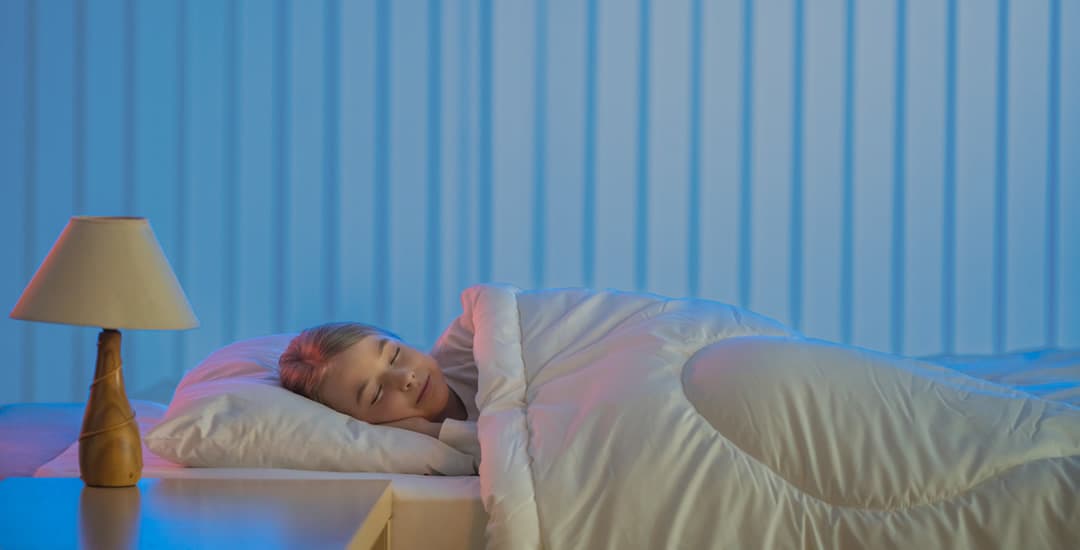
Are blackout blinds good for sleep overall then? This is definitely a two-sided coin. If light from any source wakes you up or keeps you up when you want to be asleep, or even simply means you don’t sleep as well or as deeply as you otherwise would, then blackout blinds will definitely improve your sleep and ergo, quality of life.
However, this is not true for everyone. Some people’s routines and sense of the passage of time and so, orientation, rely strongly on waking up when the sun comes up, or at least being peripherally aware of the beginnings of dawn.
Folk like this do find or would find that waking up in a dark room unsure if it’s 2am or well past time to get up and milk the cows is/would be hugely disorienting, and likely to mean that waking up every day feels jarring and unpleasant, which can go on to have an impact on their whole day.
What then, if you are a person who both cannot sleep with background light/past the light of dawn and also, don’t like or can’t manage to wake up in a pleasant manner at the right time in a dark room?
I’d suggest again looking at a combination of blackout blinds and a daylight alarm clock.
These come with a daylight spectrum dimmer bulb, which you program with your desired wakeup time. The lamp then starts to emit a very faint and ever-increasing light starting half an hour before this time, until it’s basically simulating full sun at the point at which you actually need to get up.
Finally, if you want to read a more in-depth post on whether or not blackout blinds help you sleep and any potential downsides of them, I’ve covered this in more detail in this prior blog post.

